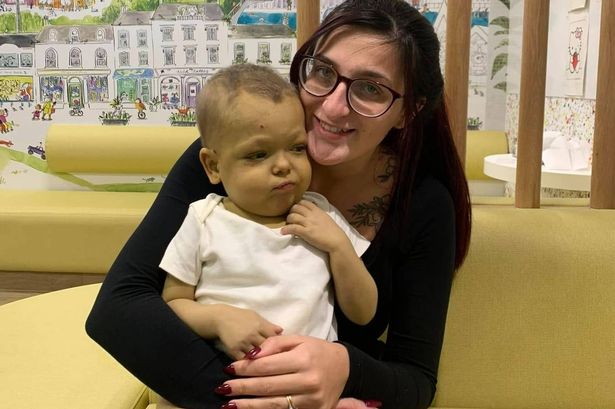The sudden and tragic passing of young Zachary Bradford, just a day after his mother, Jade, made a heartfelt plea for organ donation, has cast a somber shadow over the start of the new year. Zachary’s story underscores the critical need for organ donors and highlights the devastating consequences families face while waiting for a life-saving transplant. His mother’s brave and public appeal, made with the hope of securing a future for her son, now serves as a poignant reminder of the fragility of life and the importance of considering organ donation. The circumstances surrounding Zachary’s death have not been publicly disclosed, but the timing, so closely following his mother’s plea, amplifies the tragedy and serves as a stark illustration of the urgent need for more organ donors. This heartbreaking event has resonated deeply within communities across Scotland and beyond, prompting reflection on the power of giving and the potential to save lives through organ donation.
Jade’s New Year’s resolution plea, made just 24 hours before Zachary’s death, was a desperate attempt to raise awareness and encourage people to register as organ donors. She understood the precarious nature of her son’s health and the slim chances of receiving a transplant in time. Her appeal was not just for Zachary, but for all those waiting for a life-saving organ, individuals and families clinging to hope amidst uncertainty. The emotional weight of her message, coupled with the tragic turn of events, has touched the hearts of many and sparked conversations about the importance of organ donation. It serves as a powerful testament to a mother’s love and her unwavering determination to fight for her child’s life, even in the face of overwhelming odds.
The scarcity of available organs is a persistent challenge within healthcare systems worldwide. The demand for transplants far outweighs the supply, leading to agonizingly long waiting lists and, tragically, the loss of lives. Many factors contribute to this shortage, including a lack of awareness about organ donation, misconceptions surrounding the process, and religious or cultural beliefs. Addressing these issues requires a multifaceted approach, including public education campaigns, streamlined registration processes, and ongoing dialogue within communities to dispel myths and encourage greater participation in organ donation programs. Zachary’s story poignantly illustrates the real-world consequences of this organ shortage, emphasizing the urgency of finding solutions and increasing the number of available organs for transplant.
The process of organ donation, while complex, is rooted in a profound act of generosity and compassion. It involves the surgical removal of organs or tissues from a deceased donor and transplanting them into a recipient whose own organs have failed. The decision to become an organ donor is a deeply personal one, often influenced by individual beliefs and values. However, the potential to save multiple lives through a single act of donation makes it a powerful and transformative gesture. Organs that can be donated include the heart, lungs, kidneys, liver, pancreas, and intestines. Tissues such as corneas, skin, bone, and heart valves can also be donated. Understanding the process and its potential impact can help individuals make informed decisions about organ donation and contribute to a system that offers hope and a second chance at life for those in need.
For families facing the loss of a loved one, the decision to donate their organs can be both difficult and immensely rewarding. While grieving their loss, they are presented with the opportunity to find meaning and solace in knowing that their loved one’s legacy will live on through the gift of life to others. Organ donation can offer a sense of purpose and closure during a time of profound sadness. It is a testament to the enduring human spirit and the capacity for compassion even in the face of unimaginable grief. The decision to donate is ultimately made by the family, and support systems are in place to guide them through this complex process with sensitivity and understanding.
Zachary’s story serves as a powerful call to action, urging individuals to consider the profound impact of organ donation. Registering as an organ donor is a simple yet significant step that can potentially save lives. It is a commitment to giving the gift of life and hope to those facing critical illness. By raising awareness, dispelling misconceptions, and encouraging open conversations about organ donation, we can create a more compassionate and supportive environment for those in need. Zachary’s legacy can be one of hope and inspiration, reminding us of the importance of selfless giving and the potential to transform lives through the act of organ donation. His story underscores the urgent need for increased organ donation registration and the power of individual action to make a difference in the lives of others.














